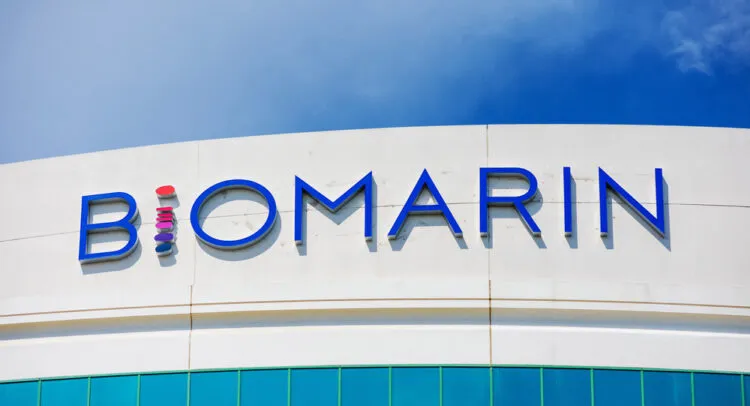
BioMarin Boosts Enzyme Therapy Business with Inozyme Acquisition
BioMarin Pharmaceutical and Inozyme Pharma today announced that BioMarin has entered into a definitive agreement to acquire Inozyme for $4.00 per share in an all-cash transaction valued at approximately $270 million in total consideration. The deal, which comes after a unanimous approval by both companies’ Boards of Directors, is expected to close in the third quarter of 2025, following standard closing conditions, including securing regulatory approval and the successful completion of a tender offer.
This significant move underscores BioMarin’s ongoing expansion and strengthening of its portfolio in enzyme therapy a key area for the treatment of rare and serious disorders with high unmet medical need. The addition of Inozyme brings a late-stage enzyme replacement therapy, INZ-701, into its pipeline — a potential first-in-class treatment for ectonucleotide pyrophosphatase/phosphodiesterase 1 (ENPP1) Deficiency, a rare, catastrophic, and progressive disease that predominantly impacts infants and children, but can manifest across all age groups.
ENPP1 Deficiency is a complex and multisystem condition stemming from mutations in the ENPP1 gene. This results in a dramatic drop in ENPP1 activity, which normally maintains appropriate pyrophosphate levels in the body. The deficit in ENPP1 activity subsequently contributes to abnormalities in bone mineralization and controls the expression of a range of signaling factors, notably FGF-23 (Fibroblast Growth Factor 23). The disease profoundly affects the patient’s vasculature, soft tissues, and bone structure. Importantly, ENPP1 Deficiency is associated with a high risk of cardiovascular complications — a major cause of death across all ages — and is frequently marked by severe rickets and bone abnormalities in children and adults alike. Currently, there are no approved therapies for this condition, placing a heavy burden on patients, their families, and the multidisciplinary care teams involved in their treatment.
This is where INZ-701 comes in. Currently under investigation, INZ-701 is a first-in-class, subcutaneously administered enzyme replacement therapy designed to directly address the underlying metabolic abnormalities that cause ENPP1 Deficiency. INZ-701 aims to normalize pyrophosphate levels and reduce FGF-23 activity — two key contributors to disease progression — thereby offering the potential to ease symptoms, improve quality of life, and reduce complications related to the disease.

The ongoing Phase 3 pivotal study in children with ENPP1 Deficiency is a major milestone in its clinical development, with data expected to be available in early 2026. Furthermore, a pivotal study in infants is currently underway, alongside plans for a supportive study in the adolescent and adult population. The growing body of data for INZ-701 shows a favorable safety profile, with no serious adverse events directly attributable to the treatment. Importantly, the therapy has demonstrated improvements in pyrophosphate levels, bone mineralization, and related biomarkers — all signals of a potential disease-changing therapy for a condition that, until now, has had none.
“BioMarin has been deeply committed to advancing enzyme therapies for children and adults living with serious genetic disorders for more than 25 years, and today’s agreement builds on our legacy,” said Alexander Hardy, President and Chief Executive Officer of BioMarin. “This acquisition brings to BioMarin an important medicine that has the potential to be the first treatment for children and adults with ENPP1 Deficiency, improving care for people living with this serious condition. As we continue our transformation and execute upon our corporate strategy, we will pursue both external innovation alongside internal innovation. We are in a strong financial position to bring in additional assets as we accelerate the development of medicines for patients with significant unmet need.”
“Today’s announcement brings greater hope to patients who may benefit from INZ-701 — a potentially transformative therapy designed to address the underlying causes and systemic impacts of ENPP1 Deficiency,” said Douglas A. Treco, Ph.D., Chief Executive Officer and Chairman of Inozyme. “BioMarin, with its strong expertise and extensive experience in developing enzyme therapies, is a powerful team to bring INZ-701 forward and hopefully make a dramatic difference in the lives of children and adults battling this rare disease. I’d like to thank the team at Inozyme and our partners for their outstanding work and continued dedication as we pass this important, potentially life-changing therapy to a leading innovator in genetically defined disorders.”
ENPP1 Deficiency occurs due to mutations in the ENPP1 gene, which normally produces a key enzyme responsible for regulating pyrophosphate and other metabolic mechanisms related to bone and arterial health. Without this enzyme, pyrophosphate drops to dangerously low levels, while FGF-23 expression increases, fueling phosphate wasting and poor bone mineralization — a combination that contributes to rickets, dental abnormalities, arterial calcification, and a range of complications across multiple organ systems.
The disease typically shows its first symptoms during infancy, although it can manifest later in childhood or even in adulthood. The condition involves significant multidisciplinary care and follow-up by a team of medical experts — typically including pediatricians, endocrinologists, orthopaedics, cardiologists, and dental care providers — all working together to manage its complex complications. Currently, there are no disease-specific treatments for ENPP1 Deficiency, meaning patients and their families face an uphill battle against its progression.
Through its planned studies and ongoing clinical development, INZ-701 holds the potential to become a much-needed breakthrough for these patients — delivering a disease-specific treatment that directly targets its root cause. If INZ-701 successfully reaches approval in 2027, it will be the first disease-specific treatment for ENPP1 Deficiency — a dramatic stride forward in improving the standard of care for this vulnerable patient population.
Overall, this deal signals a major step forward for both companies. The combination of Inozyme’s innovative pipeline and BioMarin’s extensive expertise in developing enzyme-replacement therapies stands to bring forward a much-needed treatment option for children, infants, and adults battling ENPP1 Deficiency — offering new hope for improved outcomes and a better future for those living with this rare, serious, and complex disease.





